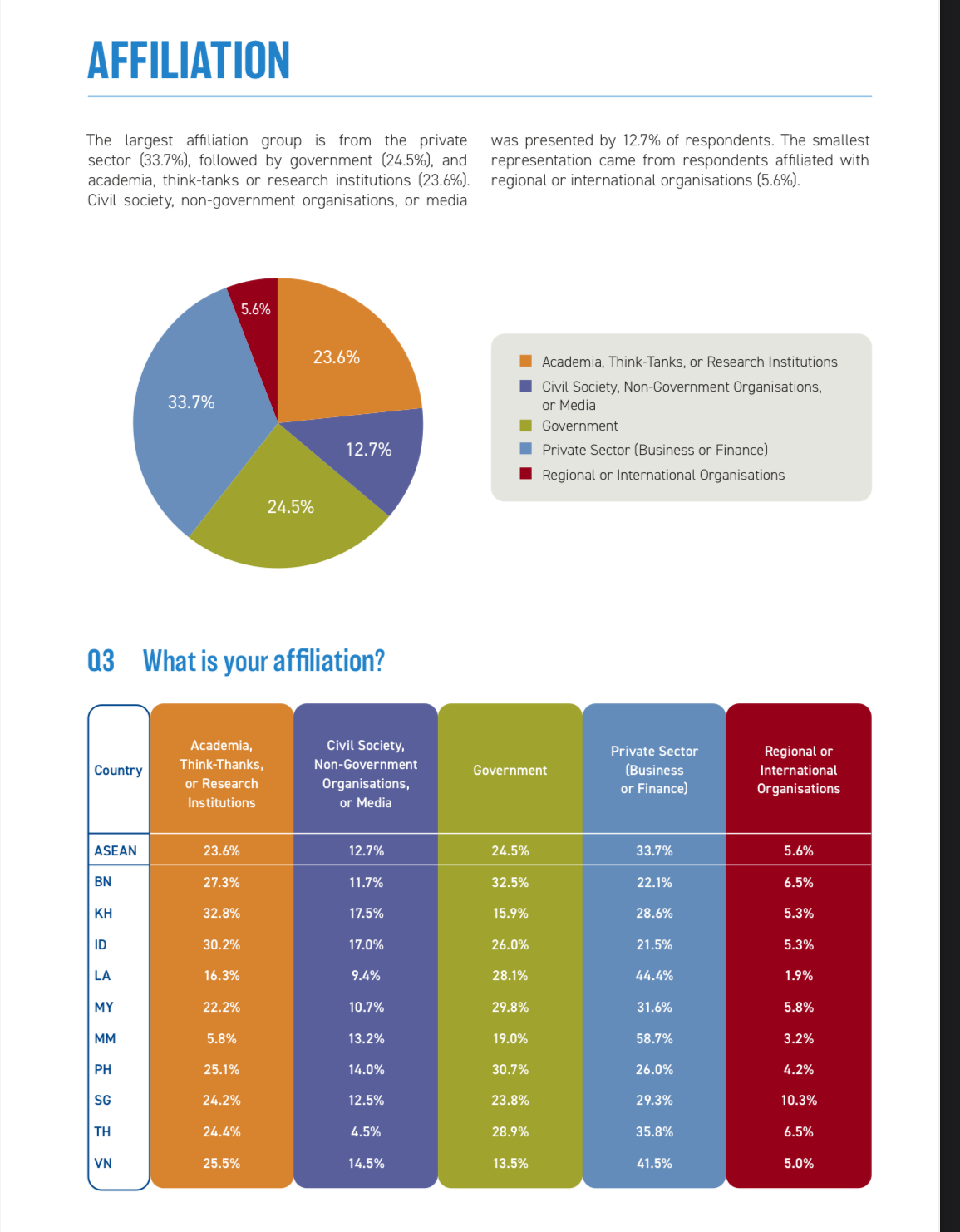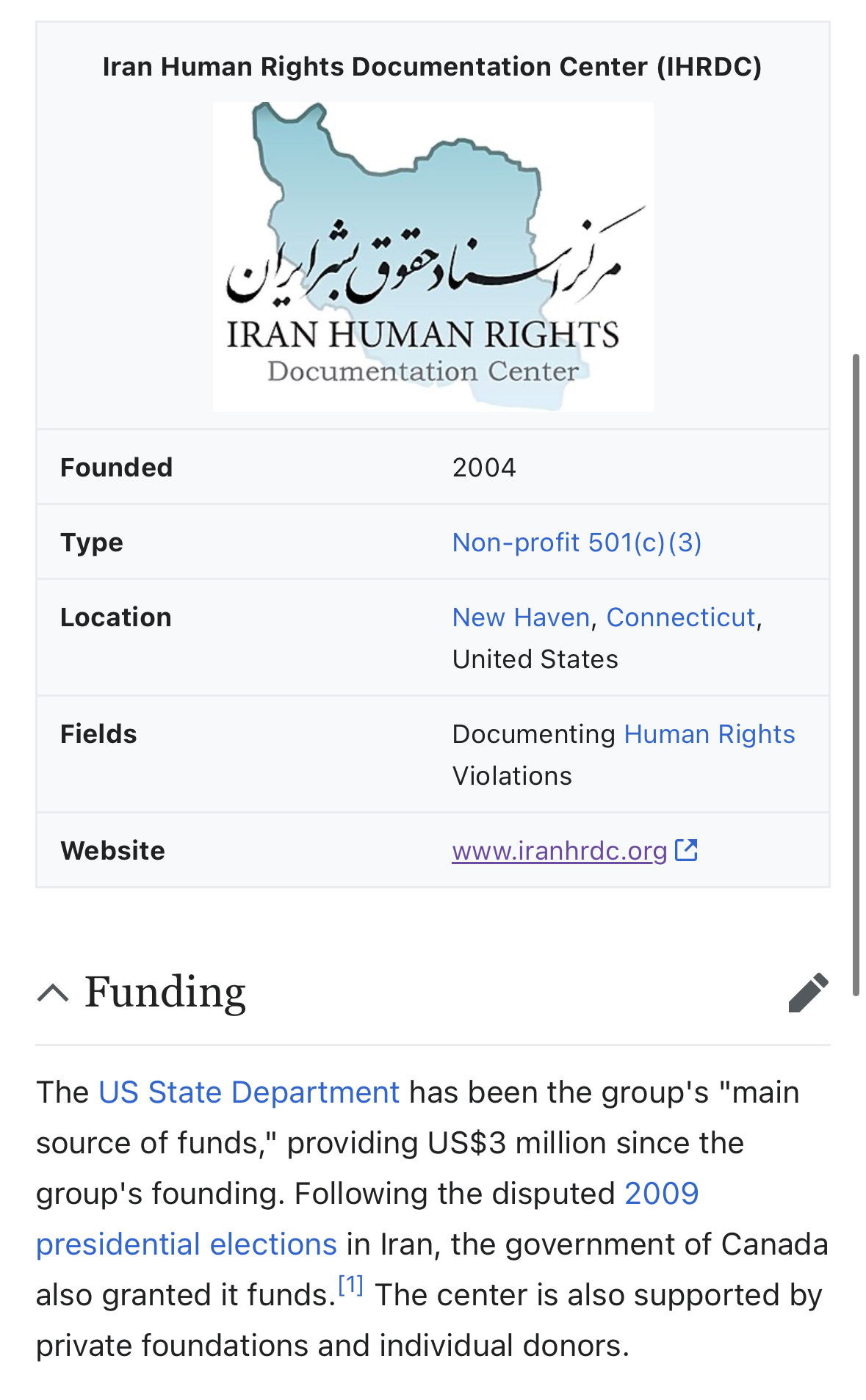Important to note that the ISEAS-Yusof Survey has always measured the opinions of the elites and the professional middle classes moreso than the average person.

Important to note that the ISEAS-Yusof Survey has always measured the opinions of the elites and the professional middle classes moreso than the average person.

I definitely agree.
This article “Why ‘non-alignment’ is obsolete, costly optical illusion” does go over some issues regarding the toothless Non-aligned Movement if they do not fully commit to truly being independent like Iran or Belarus. I don’t really have any good arguments against what the author is saying, even if it’s mainly referring to an African context.
I assume you mean DPRK’s relation with Indonesia/Malaysia?
From what I know there is some trade that goes on between both countries and North Korea but it is quite minuscule.
Right now North Korea still struggles with agricultural production and requires imports but both Malaysia/Indonesia, suffering from Imperialism, means that they are unable to provide what North Korea wants. Both Indonesia and Malaysia are net food importers. Indonesia especially is neo-colonized and de-industrialized.
Although Malaysia is able to provide industrial electronic goods, North Korea is able to source them directly from China which I assume is much easier and cheaper. Military equipment wise both Indonesia/Malaysia defence industries are undeveloped and so that also hampers any potential for trade with North Korea.
The relations between North Korea and Malaysia/Indonesia has and will probably continue to be mostly symbolic but I think the future does look brighter. Inshallah.
Edit: I forgot to say that Indonesia and previously Malaysia maintaining good relations with North Korea despite no economic benefits and invites criticism by the West does showcase some semblance of independence despite facing imperialism. It should be supported.
I made a comment on Lemmygrad months back giving a brief overview of North Korea-Malaysia relations. Malaysians used to have visa-free access to North Korea.
Here’s a copy
North Korea-Malaysia diplomatic relations were cordial in the past but worsened in 2017 after the assassination of Kim Jong-nam in 2017 in KLIA. Relationships soured further in 2021 after Malaysia expedited a North Korean businessman to the US in contradiction to north Korean wishes.
Further information by an official Malaysian government website. Another Malaysian site detailing the timeline of events.
Here is north Korea's official response by their Ministry of Foreign Affairs.
It is important to note however the Malaysian establishment is in favour of positive diplomatic relations with North Korea. Friendly relations is especially advocated by Mahathir, a member of the traditional Malay-Muslim ascendant national bourgeoisie that governed as PM from 1981-2003 and 2018-2020. He did leave remarks that he wanted to improve relations with North Korea when he was in power. However after the Sheraton move, and subsequently 2 governent reshuffles and the 2022 election, diplomatic relations with North Korea is stuck in limbo without any sign of change in the short term.
In terms of national ideology and foreign policy, North Korea and Malaysia have more in common than differences. To speak of it in a Malaysian perspective, Malaysia was one of the first member of ASEAN to normalize relations with communist countries. Despite being a middle-power state, it has more than 111 diplomatic missions in 85 countries, with a passport holding visa-free travel through 168 territories.
Although the current circumstances is unfortunate, I don't doubt that eventually Malaysia-North Korea relations will warm up again - especially with the decline of US-led Western hegemony.
As for Indonesia, this article titled Indonesia and North Korea: warm memories of the Cold War gives quite detailed information on the subject.
I’d also like to add that DPRK alongside Iran, are the only ones that maintain a strictly progressive and anti-imperialist position on “Israel” and Palestine.
All other AES and Islamic countries falter, either through their “2-state solution” rhetoric or even worse by having non-insignificant economic relations with “Israel” (looking at you Viet Nam).
Is this a Uyghurs attempt by

?
Yes.
Iran has been facing crippling sanctions from the USA that is equivalent to that of Cuba.
We should be especially careful with narratives from Western media (Human Rights Watch) and Western-allied media (Al-Jazeera).
I did a quick read of the HRW report, which cites numerous Iranian Human Rights NGOs based in the USA, with one of them, on their wikipedia page even saying it was funded by the US Department Of State.

So much benefit of doubt is given to these Western aligned NGOs but not a single shred is given to an imperialized nation that is perhaps the only Islamic country on Earth to successfully and completely defeat Imperialism from it’s borders (except perhaps Algeria)?
Looking at the actual HRW report:
Immediately revoke all policies and repeal laws that legalize violations of the rights of Baha’is, including but not limited to:
Oh Article 12 which states:
The official religion of Iran is Islam and the Twelver Ja'fari school [in usual al-Din and fiqh], and this principle will remain eternally immutable. Other Islamic schools, including the Hanafi, Shafi'i, Maliki, Hanbali, and Zaydi, are to be accorded full respect, and their followers are free to act in accordance with their own jurisprudence in performing their religious rites. These schools enjoy official status in matters pertaining to religious education, affairs of personal status (marriage, divorce, inheritance, and wills) and related litigation in courts of law. In regions of the country where Muslims following any one of these schools [fiqh] constitute the majority, local regulations, within the bounds of the jurisdiction of local councils, are to be in accordance with the respective school [fiqh], without infringing upon the rights of the followers of other schools.
So they basically want to reverse the popular revolution of the masses that overwhelmingly supported the Islamic revolution of 1979? Perhaps now we know what the geopolitical aims that this false narrative of persecutions and oppression is hoping to entail?
By the way here’s Article 13 and 14 of the constitution:
Article 13: Zoroastrian, Jewish, and Christian Iranians are the only recognized religious minorities, who, within the limits of the law, are free to perform their religious rites and ceremonies, and to act according to their own canon in matters of personal affairs and religious education.
Article 14: In accordance with the sacred verse; ("God does not forbid you to deal kindly and justly with those who have not fought against you because of your religion and who have not expelled you from your homes" [60:8]), the government of the Islamic Republic of Iran and all Muslims are duty-bound to treat non-Muslims in conformity with ethical norms and the principles of Islamic justice and equity, and to respect their human rights. This principle applies to all who refrain from engaging in conspiracy or activity against Islam and the Islamic Republic of Iran.
foreigners are moving in.
Was this made in the 1500s
Just read an article that talks about imperialism, neo-colonialism, coloniality, decoloniality and feminism that was funded by the NED.
We believe in collective movements and are interested in further observing the growing connectivity within and without the region, especially in the last few years: from Thailand to Myanmar and Hong Kong, as seen in the Milk Tea Alliance and pro-democracy movements. These show us the power of the people, who are constantly building political solidarity for a common goal. Our shared past (i.e. colonialism) still shapes our shared present struggle for an inclusive democracy.
Anti-imperialism in form but imperialism in substance.
So the collaborator oligarchs that are conducting genocide in West Papua had the audacity to ask the Western mining conglomerate Freeport to invest in downstream industries and they are complaining.
Freeport warns copper export ban could cost Indonesia $2 billion in lost revenue
Classic
Thanks for sharing 
I made a comment in a Hexbear news megathread about this here. Although it’s mainly just referring to news articles.
The nature of the situation will not mirror that of Ukraine fortunately, however there are other risks involved.
I have now read 2 articles advocating for “security engagements” with the West for both Malaysia and Indonesia.
I suspect this entire facade is ultimately for this exact purpose. ASEAN has it’s faults but what the West wants to currently do is undermine ASEAN centrality (as much as they claim otherwise).
The escalation ultimately led by US-led monopoly capital, wants to break apart the long-standing neutrality and non-alignment that ASEAN was built on, with their current “Indo-Pacific Strategy” basically being the classic divide and conquer. They are using the Phillipines as their age-old pawn as not only an attack on China but also a threat on other major non-aligned states in the SCS, specifically Malaysia, Indonesia and Thailand.
Let us remind ourselves that this escalation is happening right when the ASEAN-China code of conduct negotiations has been finalising (news article in the aforementioned comment). The last thing the imperialists want is a truly free and independent Southeast Asia.
You are right that as Southeast Asians we must reject all forms of US imperialism, and this meaningless agitation does not help nor is the interest of the masses.
Eh even if that was his intention, trashing Singapore is more of an insult to the West than Asia.
Still fine in my book.
It depends on the country I feel. I think Singapore/Indonesia is more China friendly on the ground than is reflected in the polls. Philipines is much more neutral.
Myanmar - I am unsure which specific people and group they polled but I think certain ethnic enclaves are much more China friendly than it implies, especially along the border with China.